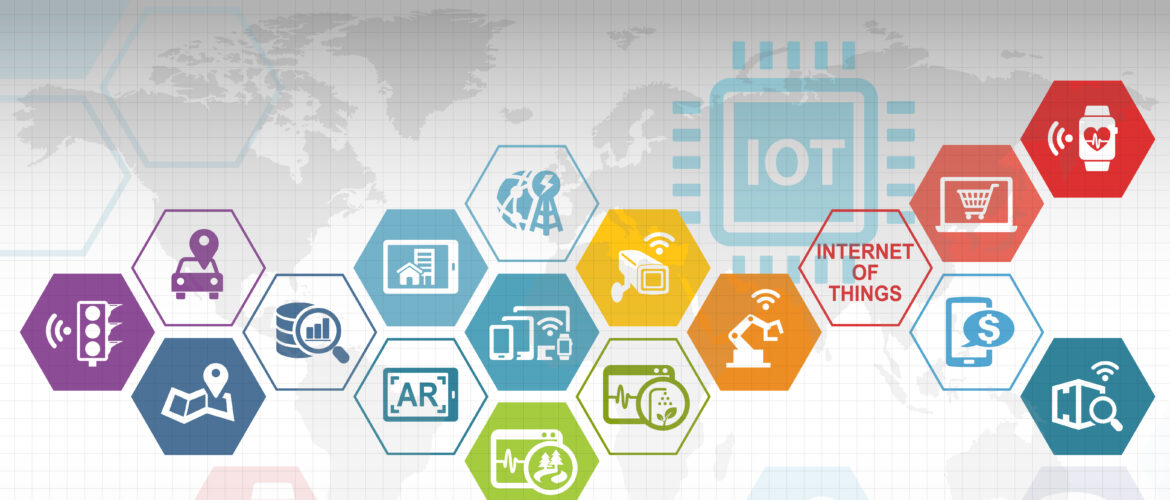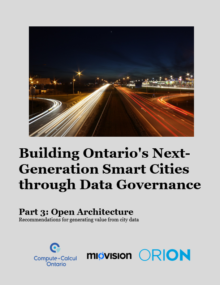Part 3: Open Architecture
Recommendations for generating value from city data.
Cities across Ontario are introducing digital technologies to create a smart city that delivers effective and equitable urban mobility solutions. Smart city transport uses electronic and network technologies to provide access to smarter, safer, and faster travel. However, access to data collected from these technologies is often limited to certain stakeholder groups, constraining collaborative problem solving and opportunities for new data economies. To create inclusive cities that are truly smart, we need to implement governance mechanisms that facilitate equitable data access to drive decision-making.
ORION and Compute Ontario produced a series of reports entitled “Building Ontario’s Next-Generation Smart Cities through Data Governance”. The reports explore data governance models that can support smart cities, economic development, and the collection of information in Ontario.
We continue the series with a report from Miovision that proposes open architecture data governance to enable more equitable participation in Ontario’s data economy.
How can equitable access to data in smart cities generate new economic opportunities while safeguarding the information that is collected?
Miovision has a unique set of experiences with devices and software that collect and utilize data from transportation infrastructure using communication networks, cloud, and software technologies. This report provides insights about the opportunities to leverage data generated from transportation infrastructure to usher in the smart city.
Findings
The open architecture data governance and exchange mechanisms proposed in this report align with many aspects of Ontario’s emerging data strategy, including promoting equitable access to data, creating economic benefits, public trust and confidence, and enabling better, smarter, more efficient government.
Summary of recommendations:
- Use open software and open standards where possible
- Be transparent about data transfers, and the terms under which they occur
- Create strong governance mechanisms
- Unlock new potential revenue streams and economic development for cities
- Enable Ontario firms to unlock the commercial value of data
Open technology and data make cities smarter by allowing users access to platforms or systems with few constraints or restrictions on their use. To enable citizen-generated innovations, cities must choose open software and open standards, and technologies that are secure, interoperable, locally procured, flexible, durable, and scalable.
To learn more, read Part 3 of our series: Open Architecture.


